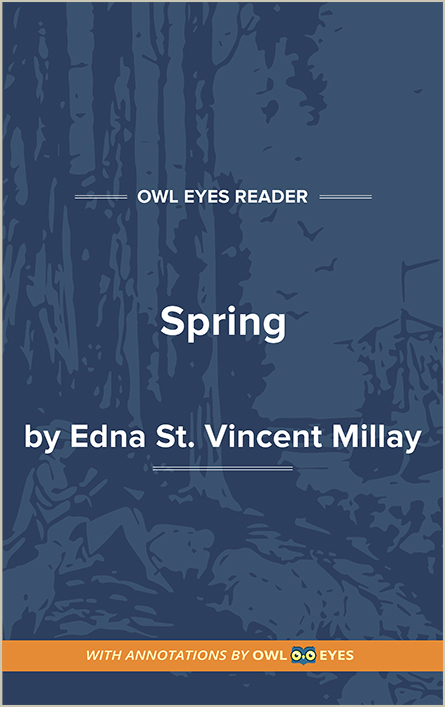- Annotated Full Text
- Literary Period: Modernism
- Publication Date: 1921
- Flesch-Kincaid Level: 4
- Approx. Reading Time: 0 minutes
Spring
The contents of Edna St. Vincent Millay’s “Spring” may surprise you. Millay’s narrator does not praise the season for its beauty. Nor does she read in the blooming flowers rebirth and life. Rather, the poem offers a comedic diatribe against April, the “idiot strewing flowers.” Throughout the poem the narrator resists the poetic trope of rhapsodizing the beauty of April.Instead, she asks, “what does it signify?” and trusts her only her own experience, asserting “I know what I know.” Millay’s discomfort with with April’s vapid beauty reflects a metaphysical crisis of meaning common in modern secular poetry. The poem captures a moment in which the narrator skillfully describes her crisis as she experiences it. Thus the poem itself becomes a type of answer to the problem of meaning: even if life is inherently meaningless, making art out of crisis generates beauty.
- Annotated Full Text
- Literary Period: Modernism
- Publication Date: 1921
- Flesch-Kincaid Level: 4
- Approx. Reading Time: 0 minutes

